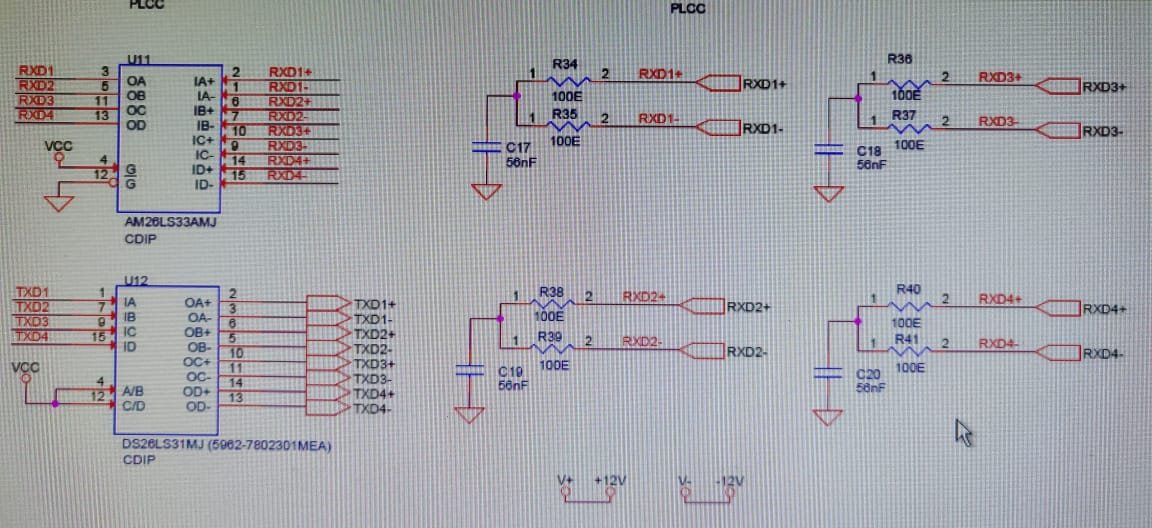Dear Sir,
Please find the below block diagram. There are two systems named as SYS1 and SYS2 connecting through RS422.
SYS1 is designed by us. We are using DS26LS31MJ-SMD or DS26LS31MJ/883 as QUAD RS-422 driver. ( SYS2 is developed by another company)
On Testing, we found the TX+,TX- pin of the port connected to SYS2 alone ios getting damaged repeatedly. Other ports of this driver are working fine.
As we had AM26LS31MJB also in our stock, we tried replacing DS26LS31MJ by AM26LS31MJB. We have not faced any issue in communication and the systems are functioning satisfactorily. From the datasheet, we are not finding any difference between DS26LS31MJ and AM26LS31MJB.
Kindly get back to us for the probable cause of failure. Expecting reply as early as possible as we have assembled many systems with DS26LS31MJ.
Thanks & RegardsTI query.docx
Alok Ranjan


